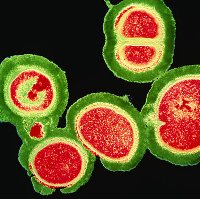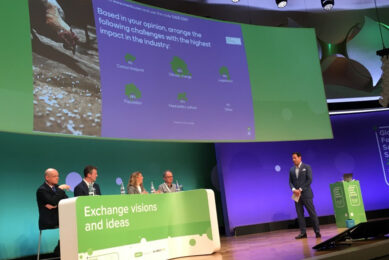11% pork is contaminated with MRSA bacteria

A recent study carried out by the risk department of the Dutch Food and Consumer Product Safety Authority (VWA) revealed that 11% of meat products in the retail sector is contaminated with the hospital bacteria ‘MRSA’.
In 84% of the cases, the nt-MRSA (non-typable MRSA), which affects pigs, calves and livestock farmers is present.
MRSA is the name given to a group of bacteria that belong to the Staphylococcus aureus (SA) family of bacteria. The people who are most at risk of becoming either colonised or infected with MRSA are those in close contact with people who may be carrying the bacteria, for example in hospital wards that care for ill people. Nt-MRSA is a clone of MRSA.
According to the Authority, meat does not contribute to the spread of the bacteria, which is resistant to most antibiotics. However, nt-MRSA can be spread where livestock is kept.
Live animals
Suprisingly, most nt-MRSA is found in turkey and chicken (31 and 27% respectively). With live animals, the bacteria is only found in pigs and calves.
“The figures also surprised me. My first thoughts were that it can be spread through processing,” according to MRSA-specialist, Arie van Nes, from the Faculty of Animal Health in Utrecht.
MRSA has not been found in live poultry yet. The animal health authority has confirmed that 50% of animals on pig farms are infected with the bacteria. As regards the level of infection on cattle farms, the figure is not yet known, but is under research.
Related website:











